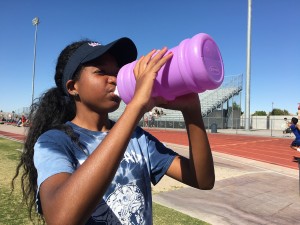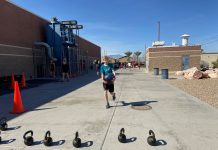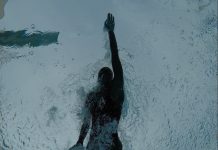By Karen Pegueros

People need to realize that water is essential to life, especially for athletes. Water is a necessity to avoid serious health issues and future complications. Not only does it energize muscles, but it keeps the body’s temperature stable. Water is used to deliver nutrients, control blood pressure and lubricate joints.
Water is crucial to athletes because it helps regulate body temperature while exercising. Without proper hydration, athletes can experience muscle cramps, dizziness, fatigue, and eventually end up dehydrated. When dehydrated, the body does not sweat, and without sweating, there is no way for the body to cool off, which can lead to heat illness. It starts with heat cramps, then heat exhaustion, and finally heat stroke. Athletes cannot perform as well when they are dehydrated because they simply do not have the energy or focus when dehydrated.
“A good amount would be about two liters a day and 500 mL per hour of exercise,” Chad Foster, athletic trainer, said.
According to familydoctor.org, athletes should drink at least two cups of water before exercising and one cup during the warm-up. It is recommended to drink seven to 10 ounces every 10-20 minutes while exercising. Within 30 minutes of completing the workout, drink a cup of water. The go-to Gatorade is not always the best choice because of the high amounts of sugar. Unless the exercise period is for over two to three hours, athletes should stick to good-old water.
“Water would definitely be the number one choice. Gatorade is good too, but water doesn’t have sugar and is far more plentiful, not to mention being better for you,” Beau Edwards, senior, said.
Waiting until thirst strikes means it’s too late. Dehydration has already set in. A key concept is to never let the need to drink guide when to drink. Reports claim using a straw can help increase the amount of fluids as people tend to naturally drink more when using a straw.
The easiest way to check if you’re well hydrated is to look at your urine. The closer it resembles water, the better. Keep in mind there is such a thing as too much water. Hyponatremia is the lack of sodium that causes blood cells to swell in the brain. Symptoms include confusion, headache, vomiting, and swollen hands and feet.
“I drink at least one water bottle during practice, but that probably isn’t enough. I could potentially end up dehydrated if I don’t start drinking more,” Sae Adachi, sophomore, said.











